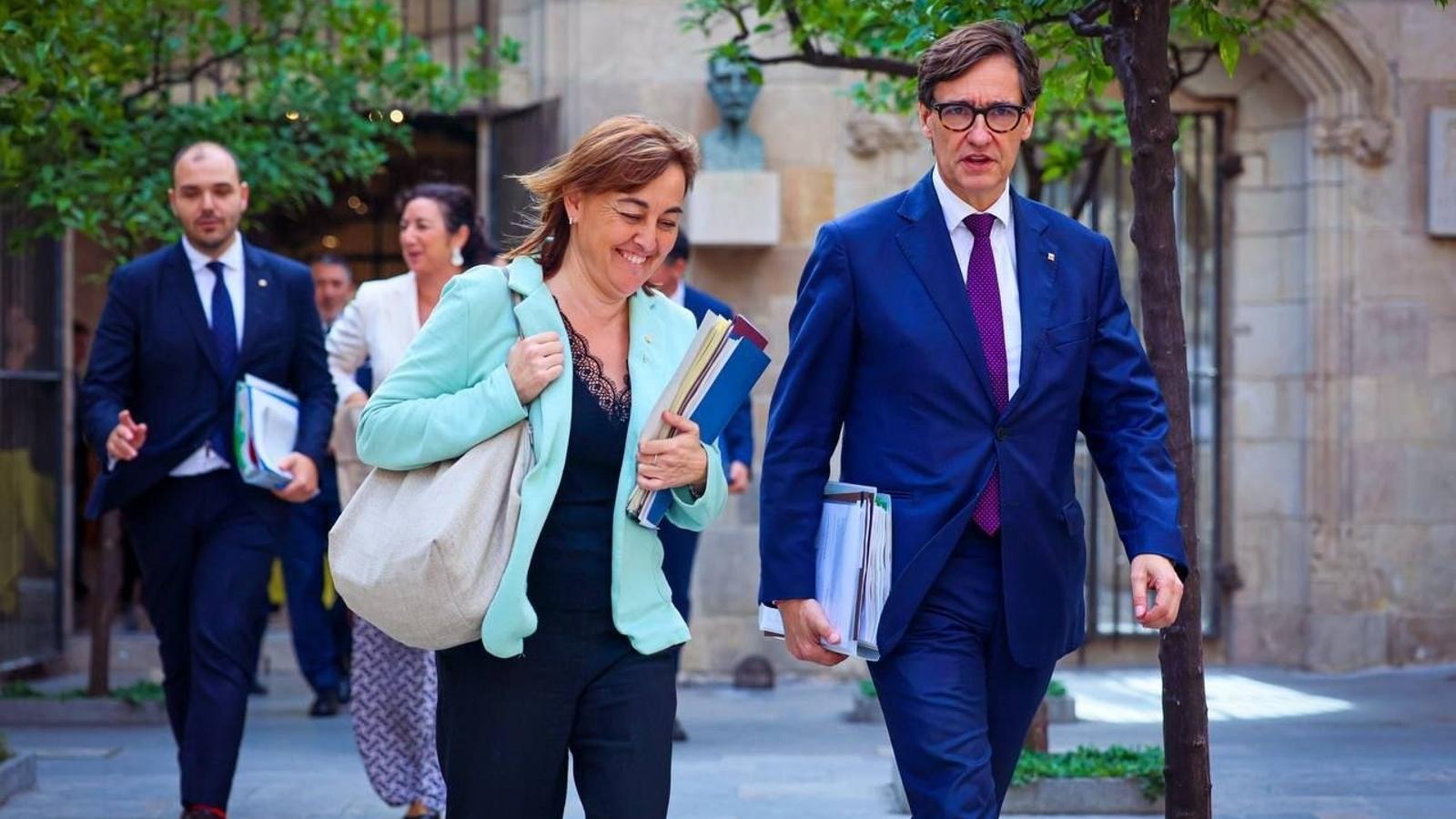The Government's pending housing tasks for this September
The PSC, Comuns, Esquerra and the CUP have already agreed in Parliament on the regulation of seasonal rentals.


BarcelonaThe new political year is beginning to take shape, and the president of the Generalitat, Salvador Illa, has unfinished business. The Socialists have overcome their first year in government with a boost. of almost 4 billion extra in the Catalan public coffers, despite having failed to approve budgets. They did so thanks to agreements with Esquerra and Comuns, the two partners that the executive will also call in the coming weeks to begin negotiations on the 2026 financial statements. However, before sitting down to talk with the Minister of Economy and Finance, Alícia Romero, Comuns is demanding a meeting to make them lack what they have been proven to be, especially housing, on which Jéssica Albiach's party has pivoted the negotiations they have held with the Catalan socialists until now.
There is one breach that particularly worries Comunes and that has been dragging on since May, with the agreement for the second credit supplement: the launch of a body of inspectors to sanction landlords who violate the rent limits established by the housing law. It was supposed to start with 65 officers before the summer and increase to 100 throughout the year. But, at this time, there is still no date for these agents to begin inspecting non-compliance with the legal regime and applying fines of up to 900,000 euros Also agreed upon with the Comunes party. Jéssica Albiach's party claims that the inspections not only serve to punish offenders, but also to send an exemplary message that discourages bad practices, for example, exceeding the rental price limit in tense areas and also avoiding providing information about the price the previous tenant was paying.
Anti-eviction unit and large holders
The government still owes Comuns two other measures: one is the creation of an anti-eviction unit, with a staff of 50 people, which was due to begin operating in September; the other is the registration of large property owners, on whom the law imposes additional burdens, such as paying taxes for having empty apartments. or pay more (20%) in the property transfer tax, beyond what is established by the housing law. The decree to create this registry is in the public information phase and has received favorable reports from the Generalitat (Catalan Government) since May.
But in the Department of Territory, Housing, and Ecological Transition, Comuns laments, they are dragging their feet on these issues. "The whole sanctioning issue is costing them a lot," says one of the party's negotiators, who acknowledges that both the Department of Economy and Finance and the Department of the Presidency are closely monitoring this department to try to get it on track. Sources from the Department of Territory assure that they are working to comply and specify that the registry of large landowners will be approved "in the coming weeks."
Seasonal rentals
Despite the delays, the Comuns parliamentary group is satisfied with the "turn" that Salvador Illa and the PSC have made in the area of housing, both for the agreements signed and for the fact that they have ended up embracing with some enthusiasm a path to which, initially, they were reluctant: that of purchasing by first refusal and redemption promotions, with the final idea of reaching 50,000 apartments throughout the legislature. "You only have to look at what they were saying a year ago and what they're saying now," emphasize sources from Comuns.
One of these changes is in the regulation of seasonal rentals, which the Socialists dropped last term when the ERC government promoted it. The common—and unprecedented—front of Comuns, Esquerra and the CUP In the negotiation of a decree of urgent measures on housing in April, the PSC was forced to agree to regulate this type of rental, on the rise and has become the legal loophole that landlords take advantage of to commit fraud. In Barcelona, for example, the number of new seasonal rental contracts has grown by 62% since the price cap came into effect.
Agreement on the text
The new regulations are being worked on in Parliament as part of the bill processing of the decree that was passed with the votes of these groups. This same bill will incorporate legal changes to include recognition of the inspector in Catalan law—which is independent of the creation of the already agreed-upon body—and to strengthen social housing. This latter is another request from the Comunes party, which the government initially resisted, arguing that it raised legal security issues.
All of this was supposed to be completed before the summer, with the reforms processed through urgent channels. Five months later (and barring any last-minute changes), the regulations are about to be published: the PSC (Spanish Socialist Workers' Party), Esquerra (Republic of Catalonia), Comuns (Comuns), and the CUP (Cup) have already agreed and presented the joint amendments, as confirmed by ARA from several sources. In keeping with the agreement reached with the government, the final text makes it clear that rentals of a property for residential purposes are subject to the housing law, regardless of the length of the contract (thus also those made to students or workers who travel for work). Only rentals for vacation or recreational purposes will be excluded, and documentary evidence must be provided. Furthermore, the combined price paid by all tenants of a room-by-room apartment cannot exceed the ceiling that would apply if the apartment were rented as a whole.
